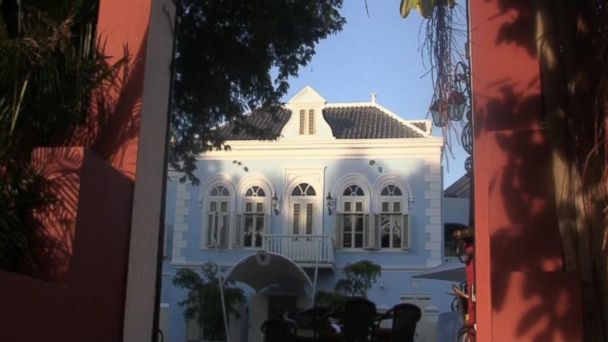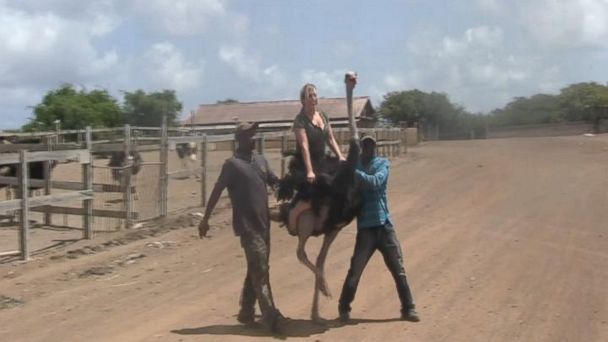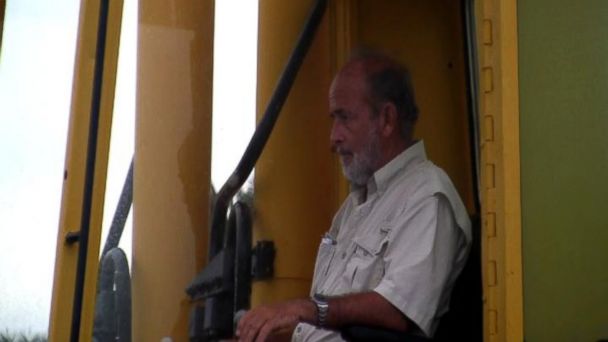Curacao, the Caribbean's Best-Kept Secret
The natives say Curacao is the best-kept secret in the Caribbean, and there are many secrets still waiting to be discovered here.
In the Capital Willemstad, locals whisper of ghost stories. They say you can feel the eerie energy while visiting the Museum in Kura Hurland Village. The museum was built in the 19th-century slave quarters and now portrays the horrific history of African slave trade in the Atlantic.
Kura Hurlanda means "Dutch Courtyard" in Papiamentu, the native tongue of Curacao, an island just off the Venezuelan coast.

The Hotel Kura Hurlanda Village (Nicole Sawyer/ABC News)
A fitting title for the village complex, with cobblestone streets leading to several courtyards and a boutique hotel. The hotel is one of a kind, constructed from restored 18th century Colonial buildings. Each of its 80 rooms uniquely decorated with antique furniture.
The property is centrally located and just a few miles down the road you can take a daring turn to the ostrich farm. One tip: If you're traveling around town it's better to rent a car, because a taxi can cost upwards of $60 round trip.
Curacao has the largest ostrich farm outside of Africa, where I learned just how strong an ostrich egg really is. It can withstand 400 pounds - the weight of a full-grown ostrich mother. I'm nowhere near that, so I got to stand on the egg. And ride one too - yes, I rode an ostrich. Here's a tip: be sure to hold on tight to your ostrich's wings. Even so, I thought I was going to fall off the entire time. It's much harder than riding a horse and very uncomfortable but worth it.

Nicole Sawyer experiences one of Curacao's best-kept secrets: ostrich riding. (Nicole Sawyer/ABC News)
But there's something about Curacao even more interesting than ghost stories and riding an ostrich. It's a man called "Dutch" who on Curacao is considered a modern-day Jacques Cousteau.
Dutch's real name is Adrian Schrier and he's the man behind the sea aquarium. He was born in Holland in 1946-forced to flee with his family after a deadly surge from the sea wiped out his entire town. It was the most devastating storm in Europe's history, over 2,000 people drowned in the flood of 1953.

Adrian Schrier, known as "Dutch" is the the man behind the sea aquarium. (Nicole Sawyer/ABC News)
Despite that, he still loves the sea. He transformed the destitute South-East area of Curacao called Bapor Kibra into a dream destination.
His once floating office greets you as you enter the sea aquarium, a massive minesweeper ship called "The Woerden." This vessel now cemented on a concrete platform retired from its days at war defending Holland. He bought the ship from the Dutch navy back in the early '90's. He let me in on his early life, when it was far from smooth sailing.
After traveling the world he was barely scraping by selling fish to aquariums, so he borrowed money from investors to fund his dream to build his own aquarium. His lenders said he was crazy but eventually they gave in. And today he's giving back.
Over the years he planted more than 500 palm trees, started a dive shop, and built an underwater petting zoo called Animal Encounters, where families can feed sharks and turtles. He also designed the Dolphin Suites Hotel for travelers with physical disabilities and they provide dolphin therapy to children with autism.
Meanwhile, money needs to be made. Rich tourists are the answer. For $650 you can hitch a ride in the Curasub with Dutch and his pilots. Dutch says the next big trend in toys for the world's wealthiest is submarines and a growing number of people are requesting submersibles on the back of their yachts.
But while tourists look out over the coral reefs on Dutch's private submarine, the Curasub and its crew are searching for something else under the sea: possible cures to save human lives. The Curasub's primary purpose isn't to be a toy for the rich, but medical research. Dutch teamed up with scientists from the Smithsonian and in just two years they have found 13 new species that exist only at the greatest depths. They hope the rare slit snails and sponges they unearthed could one day be used for the development of new anesthesia and treatment of cancer.
So while Curacao may be the best-kept secret in the Caribbean, the best-kept secret in Curacao might yet be discovered.